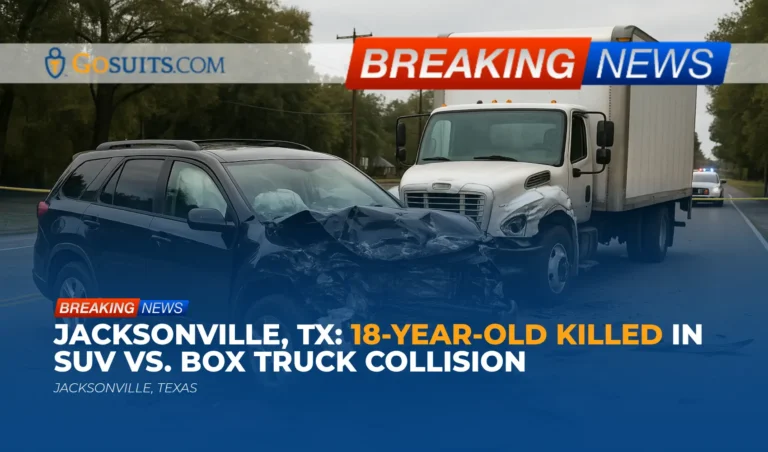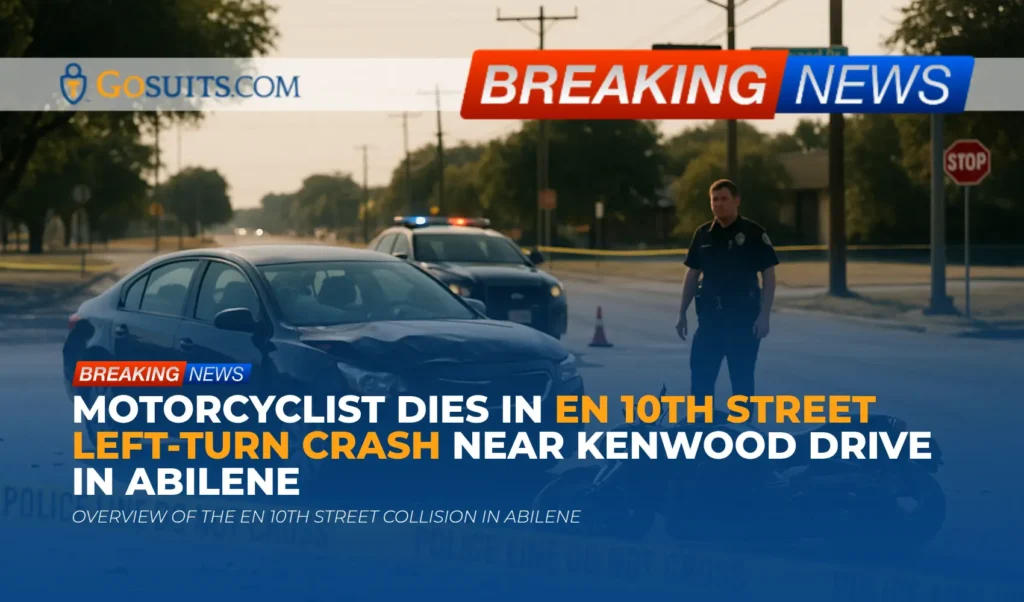A tragic vehicle collision in Jacksonville, Texas, resulted in the death of one driver on Wednesday morning. The incident, involving an SUV and a box truck, occurred in the 1200 block of East Rusk Street.
According to initial reports, the crash occurred at approximately 10:23 a.m. The deceased has been identified as 18-year-old Zara Jazmine Holmes. Preliminary investigation indicates that Holmes, driving an SUV, was attempting to enter East Rusk Street from a private drive. The box truck was traveling eastbound on East Rusk Street when the SUV reportedly failed to yield the right of way, leading to the collision. The driver of the box truck was fortunately uninjured.
Local authorities are continuing to investigate the circumstances surrounding the accident. Further details may emerge as the investigation progresses.

Right-of-Way Laws and Negligence in Vehicle Accidents
Right-of-way laws are fundamental to traffic safety, dictating which driver has the legal priority to proceed in various situations. These laws are designed to prevent collisions and maintain the orderly flow of traffic. Failing to yield the right-of-way is a common cause of accidents, often resulting in serious injuries or, as in this case, fatalities.
In Texas, as in many states, drivers entering a roadway from a private drive have a legal obligation to yield to vehicles already on the road. This means a driver must wait until it is safe to enter the roadway without impeding the flow of traffic. Failure to do so can be considered negligence, which is a key element in personal injury claims.
Negligence, in a legal context, refers to a failure to exercise the level of care that a reasonably prudent person would exercise under the same circumstances. In vehicle accident cases, proving negligence often involves demonstrating that the at-fault driver violated a traffic law (such as failing to yield), was distracted, or otherwise acted carelessly.
Investigating the Cause of the Collision
Determining the cause of a vehicle collision involves a thorough investigation that often includes:
- Police Reports: Law enforcement agencies conduct on-scene investigations, gathering evidence such as witness statements, vehicle positions, and road conditions. Their reports are crucial documents in establishing the facts of the accident.
- Witness Testimony: Eyewitness accounts can provide valuable insights into the events leading up to the crash. Witnesses may be able to describe vehicle speeds, driver behavior, and other relevant details.
- Accident Reconstruction: In some cases, accident reconstruction experts may be called upon to analyze the physical evidence and recreate the sequence of events. This can help determine factors such as vehicle speeds, angles of impact, and points of collision.
- Vehicle Data Recorders: Many modern vehicles are equipped with data recorders that capture information about the vehicle’s speed, braking, and other parameters. This data can be invaluable in determining the actions of the drivers involved.

Potential Legal Implications
When a driver’s negligence leads to a collision and causes injury or death, the injured party (or the family of the deceased) may have grounds to pursue a personal injury claim. In a wrongful death case, the family may seek compensation for damages such as:
- Medical Expenses: Costs associated with treating injuries sustained in the accident.
- Funeral and Burial Costs: Expenses related to the funeral and burial of the deceased.
- Lost Income: Compensation for the income the deceased would have earned over their lifetime.
- Loss of Companionship: Compensation for the emotional support, love, and guidance the deceased provided to their family.
- Pain and Suffering: Compensation for the physical and emotional distress experienced by the injured party or the family of the deceased.
In cases involving commercial vehicles like box trucks, additional complexities may arise. Potential parties who could be held liable may include the truck driver, the trucking company, and the owner of the cargo. Factors such as driver fatigue, inadequate vehicle maintenance, and improper loading of cargo may contribute to the accident and be relevant to determining liability.
It is important to note that legal claims must be filed within a specific time frame, known as the statute of limitations. In Texas, the statute of limitations for most personal injury and wrongful death claims is two years from the date of the incident.
Commentary from Gosuits Jacksonville, Texas Personal Injury Attorney
This tragic accident highlights the critical importance of adhering to right-of-way laws and exercising caution when entering roadways from private drives. The consequences of failing to do so can be devastating, as demonstrated by the loss of life in this incident. Families who have lost a loved one in a car accident caused by another’s negligence often face significant emotional and financial burdens. Navigating the legal complexities of a wrongful death claim can be overwhelming during such a difficult time. A seasoned personal injury attorney can provide invaluable assistance in investigating the accident, gathering evidence, and pursuing fair compensation from all responsible parties.






